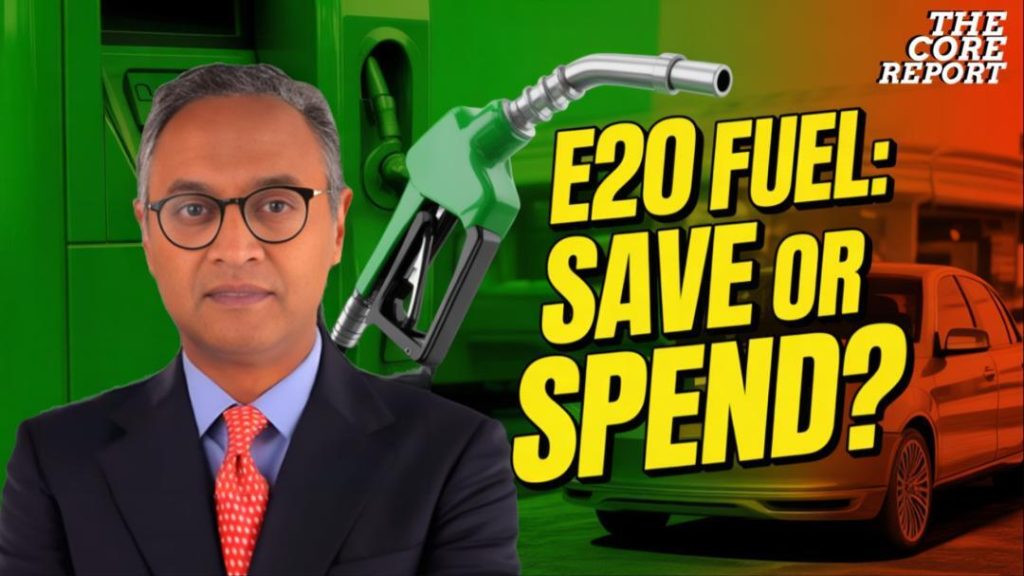
E20 Fuel in India: Benefits, Risks & What Vehicle Owners Must Know
India’s quest for a cleaner and more sustainable transportation sector has led to the introduction of E20, a blend of 20% ethanol and 80% petrol. The switch to E20 is aimed at reducing carbon emissions, boosting energy security, and supporting farmers. But what does this mean for vehicle owners? In this blog post, we’ll delve into the benefits and risks of E20 fuel, and what you need to know to make an informed decision.
Benefits of E20 Fuel
The Indian government has been vocal about the benefits of E20 fuel, and several studies have backed up their claims. For starters, E20 fuel reduces carbon emissions by up to 10%, making it a more environmentally friendly option. This is because ethanol, a natural by-product of sugarcane and other biomass, produces fewer greenhouse gases than petrol.
Another significant advantage of E20 fuel is its potential to boost energy security. India is the world’s third-largest consumer of oil, and its dependence on imports makes it vulnerable to price fluctuations. By blending petrol with ethanol, the country can reduce its reliance on foreign oil and create a more sustainable energy mix.
E20 fuel also offers economic benefits to farmers, who can sell their surplus sugarcane to ethanol plants, creating a new revenue stream. Additionally, the production of ethanol from sugarcane and other biomass can create jobs and stimulate rural development.
Risks of E20 Fuel
While E20 fuel offers several benefits, it’s not without its risks. One of the main concerns is the impact it can have on older vehicles not designed to run on E20. These vehicles may not be compatible with the blend, which can lead to engine wear, fuel system corrosion, and even mileage loss.
The Indian government has been working to address this issue by making all new vehicles E20-compliant by 2025. However, for older vehicles, the risks are still significant. Vehicle owners who continue to use E20 fuel may need to replace their fuel lines, fuel pumps, and other components, which can be costly.
Another risk associated with E20 fuel is its potential impact on fuel efficiency. While E20 fuel is designed to be more environmentally friendly, some studies have suggested that it can actually reduce fuel efficiency in some vehicles. This is because ethanol has a lower energy density than petrol, which means that more fuel is required to generate the same amount of power.
What Vehicle Owners Must Know
So, what can vehicle owners do to minimize the risks associated with E20 fuel? Here are a few tips:
- Check your vehicle’s compatibility: If you own an older vehicle, check with the manufacturer to see if it’s compatible with E20 fuel. If it’s not, you may need to consider upgrading to a newer model.
- Use the right fuel: Make sure to use E20 fuel that meets the Indian government’s standards. Using sub-standard fuel can exacerbate the risks associated with E20 fuel.
- Monitor your vehicle’s performance: Keep an eye on your vehicle’s performance, including its fuel efficiency and engine performance. If you notice any issues, consult with a mechanic as soon as possible.
- Consider upgrading to a newer model: If your vehicle is not compatible with E20 fuel, it may be worth considering upgrading to a newer model that is designed to run on the blend.
The Future of E20 Fuel in India
As the Indian government continues to push for the adoption of E20 fuel, it’s clear that the future of transportation in the country will be shaped by this blend. With the introduction of new vehicles designed to run on E20 fuel, the risks associated with this blend will be minimized, and the benefits will be more pronounced.
In conclusion, E20 fuel in India offers a range of benefits, including reduced carbon emissions, boosted energy security, and economic benefits to farmers. However, it’s not without its risks, particularly for older vehicles not designed to run on E20. By being aware of these risks and taking steps to minimize them, vehicle owners can help India transition to a more sustainable and environmentally friendly transportation sector.
News Source:
https://youtu.be/zM_EyWPyliQ






